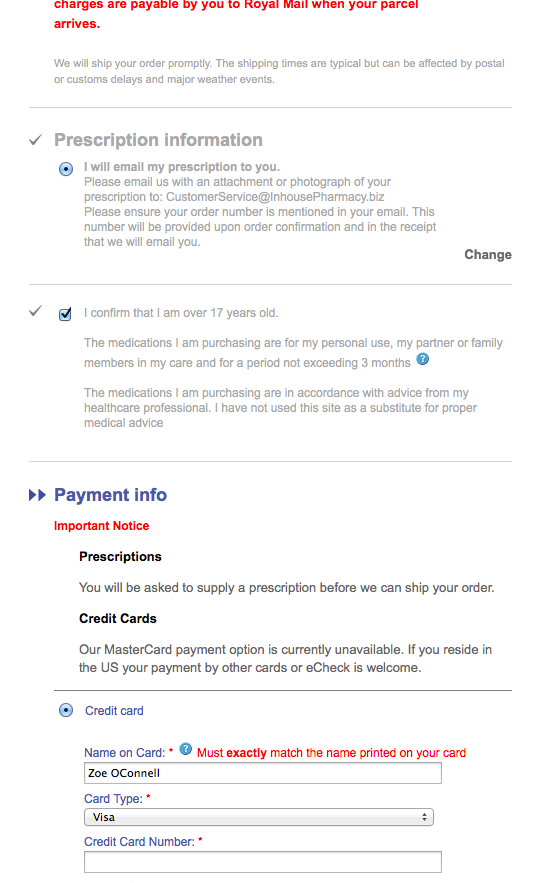For those who have not followed the long-running saga of this, there has been pressure on the passport office for some time to consider allowing the use of X (Unspecified) in place of M or F for the gender marker on passports. This is of benefit to quite a few people, as society becomes more accepting of people who do not fit within the gender binary and a number of countries already permit this. It is also of potential use for someone who might travel under one gender but work under a different one, for example.
X as a marker is part of the International Civil Aviation Organisation (ICAO) standard for passports, although it was originally intended for the handling of refugees where a large number of passports needed to be issued in a short space of time by someone who was not familiar with the gender of names in use in a culture. That’s less of an issue now than it used to be in the 1950s, but the standard remains.
Back in 2011, the Home Office and Passport Office promised to look into issuing UK passports with an X marker on them as part of the transgender action plan and partially in response to Australia doing the same. The resulting report was suppressed by the Passport Office for some time, but as a result of questions in the House of Commons last week and this week by Hugh Bayley, Julie Hilling and Stephen Doughty it’s now been released.
For some reason, the document is not on the online listing at the time of writing, but you can email the House of Commons Library to ask for a copy – I have uploaded a copy of the report here. (PDF link)
It is clear on reading the report why the Passport Office did not want it released, as it is written with little critical thought and with the obvious intention of trying to justify existing policy rather than explore new options.
Let’s skip ahead in the report to the most damning section first, option 5 on page 7 which gives the reasons they don’t want to allow X markers. Taking each point in order, we can quickly demolish the entire argument:
- Mother-knows-best, because X markers would single out individuals (correctly) as having “no gender” and thus cause offense. It would appear the Passport Office are worried that people will be offended if they are treated appropriately.
- People filling out forms are stupid, and might get it wrong. This is the same argument used to justify erasing poly households in the census when if it happens it really just suggests the form was poorly designed.
- If someone’s gender is not obvious, they don’t know who should search a person at the border. The police already figured out how to handle this and the solution may shock you: They ask who you’d prefer to be searched by if it’s not obvious.
- Apparently it’s expensive, although this is only an argument why it should be delayed until computer system changes are happening anyway rather than why it should not happen at all.
- “Other customers may request ‘X’ in their passports or in fact question whether HMPO should be asking what their gender is at all for the purpose of passport issuance and whether this is proportional“, i.e. if we allow unspecified as a marker then people might realise putting gender on passports really isn’t necessary. This phrase alone makes me fairly sure the document was not intended for public release.
- Trans or non-binary folk might require “additional consular assistance” if they are stopped in certain countries. Like this doesn’t happen already if you visit the wrong place.
- Section 22 of the Gender Recognition Act 2004 prohibits them from outing trans folk. This is an argument against forcing people to have an X marker, not an argument against requesting an X marker.
- “Evidence of gender diversity needed for an applicant to be able to select ‘X’ as a gender marker would be difficult to produce“. This is only the case because the civil service wants to make it hard to produce and they say themselves (Without justification) that “self-identification would not be appropriate”. A simple ticky box on a form to select unspecified gender would be sufficient, or a statutory declaration of some form if they want to make things complicated. This is what GIRES suggested.
What follows is a fairly detailed deconstruction of the remaining points, which you may like to skip if you are not interested in the minutiae.
Section 1, page 2 is just a recap of existing policy, but as soon as we get on to paragraph 2.1 and 2.2 (Calls for change and petition) it becomes clear whoever wrote the report was poorly briefed. Both paragraphs talk about the old Identity Cards scheme allowing trans folk to have two passports, one per gender, which is not the same as having one passport with an unspecified gender marker on.
We do start to get a hint of another theme that runs through the document in 2.2(c), however, as the Passport Service adopts a mother-knows-best approach and apparently is a better judge than the trans and non-binary communities what would be in their best interest: The Identity Card Scheme provided for a transgendered person to have two ID cards…it may also create difficulties for the individual and may increase the potential for their involuntary outing.
According to section 2.3, the Passport Office “sought to speak to key stakeholder groups and to relevant parts of Government“. They did not seem to try very hard, given they only spoke to one internal civil service group, one campaigner (Christie Elan-Cane) and one external organisation. (GIRES) They completely forget to mention that it was included in the transgender action plan by the Government Equalities Office.
The next section, 2.4, points out “there are no outstanding applications in which the applicant has sought either change to the process of considering applications from transgendered people or of changing the passport itself with the gender marking“. Quite apart from being an appalling piece of English and nearly incomprehensible, what it appears to be saying is that nobody has applied for a gender-non-binary passport. This might be because, I don’t know, the forms don’t give you an option to apply for it?
And section 2.5, we’re back to mother-knows-best: “We remain open to suggestions for change but such a change would be on the basis that it was either required by law or that it provided additional benefits to the applicant. Choice is an important factor but we have received feedback that would suggest that enabling that choice may be more detrimental than beneficial.” It is not clear what feedback they are referring to, given the lack of scope of their consultation.
Just to be clear, there is quite a bit of emphasis in section 2.6 on the fact that because they have not been listening they have not heard the calls for X markers: “There have been very little public calls for the ‘X’ provision in the passport. … There are no calls for change from gender representative groups or civil liberties groups.” Even ignoring the political pressure to change, yhe only external group they consulted, GIRES, also asked them to change the current system. It is not clear why they make reference to “civil liberties groups”.
Section 3 is a worrying graph on “Gender in the life of a passport” that repeatedly asserts that any mismatch in apparent gender presentation could indicate potential fraud. It has clearly not occurred to the passport office that they are actually arguing against their own position here: If someone has a non-binary gender or variable gender presentation, then without an “X” marker they are more likely to face problems due to their appearance being taken as fraudulent.
They also miss the obvious point that is frequently raised in such situations that gender is at best a 50/50 discriminator and thus not particularly powerful. They even note elsewhere in the document that not all government-issued ID in the UK has a gender marker on it.
Section 4 covers legislative issues. They should probably have left this well alone, given it goes a long way to arguing against their position.
Firstly, (section 4.1), they state “legislation in other areas recognises only the genders Male and Female“. Whilst this might be true, there is an increasing move towards removing gender from legislation as it just gets messy when you start dealing with same-sex marriage, people transitioning and anyone who does not fit nearly into a male/female binary world view. A good example of this would be amendments to sexual offenses legislation which now defines rape not by the gender of the attacker but by use of a penis.
Section 4.3 talks about nationality, adoption and how nationality can only be passed on by a mother or father or, in certain cases, by the father. This is already complicated by same-sex marriage and the ability of people to transition. I am more than comfortable with the ability of the courts to quite simply handle what the Passport Office call “a complex undertaking”.
Section 4.4 talks about banks establishing identity. This really isn’t the Passport Office’s problem, but if it is then the same point as in section 3 stands: If someone has a non-binary or variable presentation, having the X marker on a passport helps rather than hinders.
Section 4.5 uses the phrase “third gender”. I am not comfortable with this language, as turns gender from binary to trinary. The whole point of this is that gender is fluid and on a spectrum, and not subject to being placed into little pots. Some people may identify as third gender, but not everyone. Both this and the following section, 4.6 start talking about issues outside the scope of the Passport Office.
Section 4.7 claims that a passport bearing an X gender marker might not be “recognised by other parts of government of wider UK society“. This implies that existing legitimate passports bearing an X gender marker, either because it is an old passport belonging to a refugee or because it is from a country that does issue them would not be accepted. I find this surprising, especially given that failure to accept such a passport would be a clear-cut violation of the Equalities Act 2010.
Section 5 details their options. Mostly, these cover choices not being campaigned for such as multiple passports with different gender markers so are not relevant, but there are enough egregious errors that it’s worth pointing some of them out:
Option 2, issuing two passports, mentions “One passport, one person“. This is not a strict rule, as many frequent travelers hold two passports. Typically, this is because they are traveling in parts of the world where it is not a good idea to reveal who else you have been visiting in the region and thus they can choose to use a passport without any incriminating entry/exit or visa stamps. The argument about creating two identities could apply to anyone changing their name (e.g. through marriage) or gender, and could happen anyway if someone obtains a new passport and retains their old one. Some parts of government remain obsessed with the idea that people transition just to commit fraud.
Options 3 and 4, removing gender from passports, gets hung up on the idea of violating international standards by removing the field and overlooks the obvious choice of simply replacing gender markers on all passports with X. It also goes on about it being a “security risk” for unsubstantiated reasons and makes the bizarre observation that might still ask for it on the forms, even if it is not on the passports.
I’ve covered option 5 above and I won’t get into section 6, costs, save to say that they are at best giving justification for not doing this now, rather than justification for not doing this in future. Forms will be reprinted and redesigned at some point anyway, as will computer systems, and the costs will be much lower if rolled into the normal update cycle of such things rather than being done immediately.
Section 7 covers notes in the informal discussions they held on the issue. The internal discussion with a:gender appears to have actually taken place with Sarah Rapson, the ex-Chief Executive of the Passport Office but this may be an error.
Section 8 covers the situation in other countries, although is of little real relevance. It mentions some countries are not safe for trans folk to travel to (This is not news, and is the case regardless of gender markers) but I did find it interesting that Argentina allows people to have an X marker on their passports simply by requesting it, with no other documentation required. Malaysia are reported to be considering removing gender from all passports, allegedly in violation of ICAO standards although it would be easy to just put X for everyone as I’ve noted. Oddly, the report does not mention that India is technically violating standards by using “E” (Eunuch) to identify Hijira on their passports. I find this omission odd because if anyone is going to have found problems with unusual gender markers on passports, it is going to be India, given the hijra community is estimated at being 5 million. (The number is not that surprising given the size of India – 5 million people is only around 0.4% of their population)












